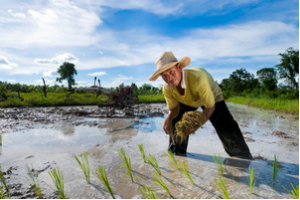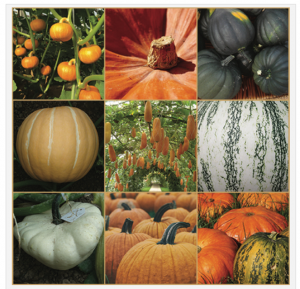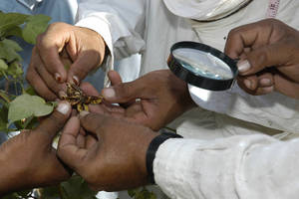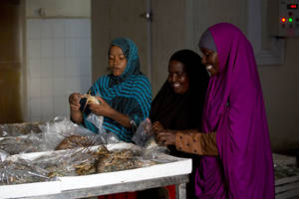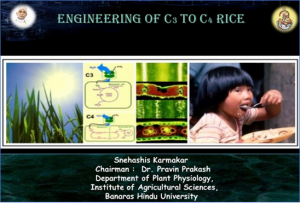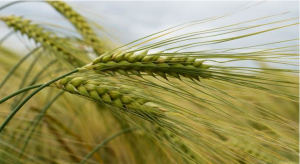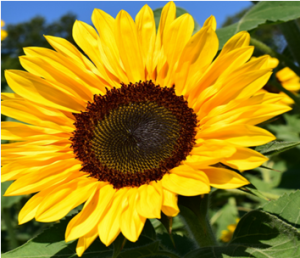Gene editing technology, such as the use of CRISPR-Cas9, could revolutionize the development of high-yielding, drought-, disease- and pest-resistant, and quality plant seeds; with lesser time of development compared to current breeding methods. These were highlighted by a panel of expert scientists at the 2017 Borlaug Dialogue conference held on October 18-20, 2017 in Des Moines, Iowa.
The latest biosafety regulatory guidelines in the Philippines, the Joint Department Circular (JDC), was presented to around 200 key stakeholders from Region III such as farmers, Department of Agriculture (DA) information officers, regulators, members of the academe (students and faculty from various universities), and constituents of local government units of selected municipalities in the region.
Chinese scientists develop new rice varieties that can be planted in seawater, which can potentially provide food for 200 million people. Scientists have long been working on rice that can grow in seawater, and finally commercially viable varieties are now being tested. Around 200 rice varieties are under testing near the Yellow Sea coastal city of Qingdao in Shandong province to see which ones perform best in salty conditions.
Scientists at Boyce Thompson Institute (BTI) and the National Engineering Research Center for Vegetables in Beijing, China have sequenced the genomes of two important pumpkin species, Cucurbita maxima and C. moschata. The research team sequenced the two pumpkin species to better understand their contrasting desirable traits: C. moschata is known for its resistance to disease and other stresses, such as extreme temperatures, while C. maxima is better known for its fruit quality and nutrition.
In keeping with recent calls for commitments from all to contribute towards a pollution-free planet, experts and observers joined members of the Rotterdam (RC) and Stockholm (SC) Conventions' chemical review committees for back-to-back meetings in Rome in recent days and reviewed a record number of chemicals for inclusion in annexes of the two Conventions,
Quality seed production and ensuring delivery of quality seeds to farmers are significant challenges for national seed systems around the globe. To address these challenges, IRRI Education, together with with the International Center for Tropical Agriculture (CIAT) and the Latin American Fund for Irrigated Rice (FLAR), conducted a two-week training on seed production and understanding of seed systems.
Global trade agreements, harmonized food safety standards and measures that benefit rather than harm poor family farmers in the developing world should be key objectives in the ongoing international trade negotiations, FAO Director-General José Graziano da Silva said today.
To improve photosynthesis in rice and increase crop yields, scientists working on the Oxford University-led C4 Rice Project have, by introducing a single maize gene to the plant, moved towards 'supercharging' rice to the level of more efficient crops. Rice uses the C3 photosynthetic pathway, which in hot, dry environments is much less efficient than the C4 pathway used in other plants such as maize and sorghum.
Scientists from the International Barley Hub have discovered a genetic pathway to improved barley grain size and uniformity. Researchers at the James Hutton Institute and the University of Dundee's Division of Plant Sciences examined the genetic control of grain formation in barley and found that a mutation in the gene called VRS3 improved grain uniformity in six-rowed barley.
A previously unattainable version of the sunflower genome has been released by a team of scientists from NRGene. The NRGene-produced genome is more comprehensive than any existing version. The assembled genome is 3.22 Gbp, built of scaffolds with an N50 of ~13.5 Mbp, less than 1% unfilled gaps, and the BUSCO results of 91% indicate that the genome is 90% complete.


 Curently online :
Curently online :
 Total visitors :
Total visitors :
